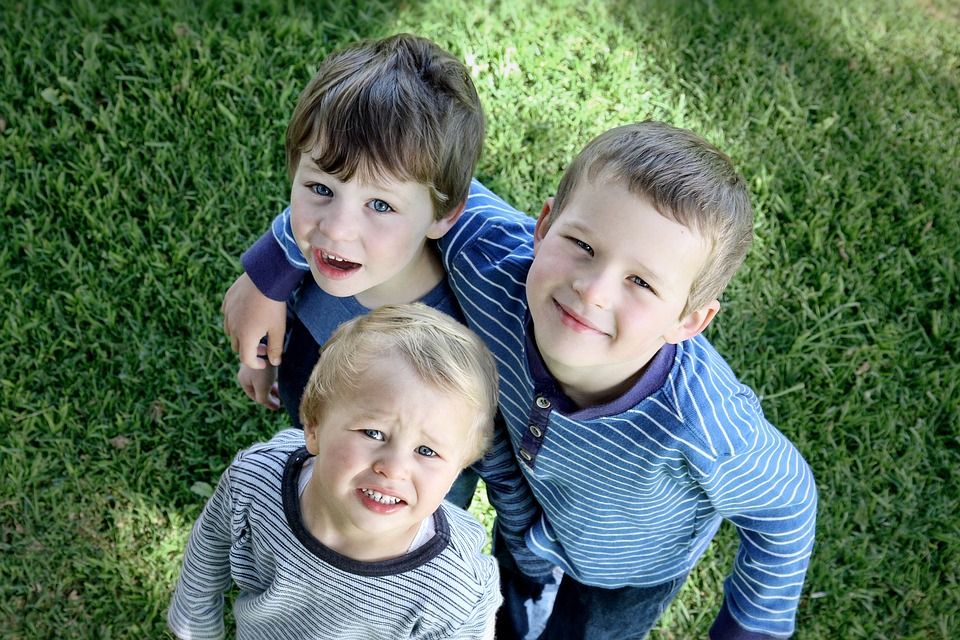
What to Expect in Child Custody Cases
Many people are often frightened to go before the judge the first time. We agree it can be intimidating to those that don’t deal with this kind of thing on a day-to-day basis as we do, but it doesn’t have to be. Check out our previous blog about how to handle yourself in court. It is even more frightening when a judge is making decisions about your most precious thing in life—your children. Most people are afraid of the “unknown” when going into court. Our attorneys at Kevin Hickey Law Partners always want to make sure our clients are well prepared and know what to expect when going to court. One of the ways we prepare our clients is helping them understand the different formats of child custody hearings.
The various formats of child custody proceedings depend on your personal circumstances. Remember proceedings is “[the] action taken in a court to settle a dispute.” Most formats include a first or initial court appearance. This is where the judge gathers a few basic details about the case.
First, we want our clients to understand exactly what we are asking the judge to grant you. In our previous blog, we explain in detail the various custody types. For a quick refresher they are:
- Legal or Joint Custody – Assuming both parents are fit, custody is awarded jointly. Both parents will make decisions on the child’s behalf.
- Physical Custody – This pertains to which parent the child lives with most of the time.
- Joint Physical Custody – The child lives with both parents on a fairly equal schedule.
- Sole Legal and Physical Custody – One parent makes decisions and the child spends the majority of time with him or her.
If you are getting a divorce, permanent custody terms for your children must be included in your final divorce decree or judgment. If you and your spouse are living apart before the divorce is finalized, the judge will establish temporary custody to put rules in place until the divorce is final. The temporary custody can be decided by an appearance before the judge. The majority of the time the lawyers do the talking on each parent’s behalf unless the judge directly asks them questions. This could very well take place in the judge’s chambers rather than a courtroom. If all goes well without disagreements from either parent, this usually takes less than an hour. For more complex cases, the judge may want more information and will schedule another appearance at a later date before making a decision. If any part of the divorce is contested, they will be addressed at a divorce trial. The custody aspect of the divorce will also take place during the divorce trial.
If you are not married then custody determination is handled through a custody trial if the parents cannot meet an agreement on their own. As with any law case, the amount of time you will spend in the courtroom depends on how complex your case is. You could have one long court appearance or a series of appearance. The judge may want a second appearance, that is often referred to as “fact-finding” or “evidentiary” hearings. This is just as the names imply---the judge is looking for facts and evidence for each person’s case. This can be in the form of physical evidence, oral testimony, character witnesses, and so forth. All of this can also take place when you are married and getting a divorce, it would just fall under the divorce trial and not a separate custody trial.
In the initial hearing or in the beginning of the only hearing in a non-complex case, the judge is trying to make sure he or she has an accurate understanding of the case. He or she will want both parents present and if one is not, why wasn’t he or she and was that parent made aware of the proceedings and the date as well as a copy of the petition or motion that opened the case. The judge will also want to know the current status of the children, who are they currently living with and when do they see each parent. Additionally, the judge will ask if the parents can reach an agreement on their own?
After the judge gathers all of the information and determines the parents can’t agree on a custody agreement on their own, then he or she may schedule a custody trial or a fact-finding/evidentiary hearing. The judge will also issue the temporary custody arrangement at this time.
It is always best if the parents can come up with their own agreement. This is the most favorable situation for all parties involved. Kevin Hickey Law Partners will be happy to help you write a parenting plan and present to the judge. If a mutual agreement can’t be reached, then we will are more than willing to represent you in a divorce or custody case. Call today for your consultation.
